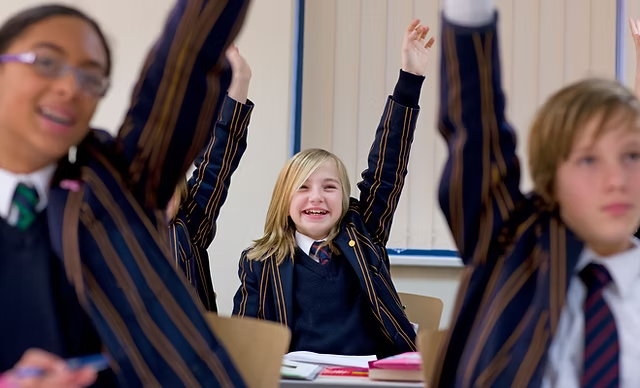
Primary and Secondary Education in Ireland
Ireland’s education system is widely respected for its high standards, inclusivity, and strong public support. At its foundation lies primary and secondary education in Ireland, which is compulsory for children from the age of 6 to 16, or until they have completed at least three years of post-primary education. The system is designed to develop students’ intellectual, emotional, and social capabilities, and to prepare them for further education, training, or employment. This comprehensive guide outlines the structure, curriculum, admissions, and supports available across the stages of primary and secondary education in Ireland.
Structure and Duration
Primary and secondary education in Ireland forms the backbone of the country’s compulsory schooling. Primary education generally begins at age 4 or 5 and continues for eight years, while secondary education typically starts at age 12 and lasts for five or six years. The primary cycle includes junior and senior infants followed by first through sixth class. Upon completion, students move on to the Junior and Senior Cycles at secondary level, which culminate in the Leaving Certificate.
Types of Schools
There is a broad variety of school types within primary and secondary education in Ireland, catering to diverse religious, cultural, and linguistic backgrounds. Most primary schools are state-funded and often have a religious ethos, although they are open to all children. Multi-denominational schools, such as Educate Together, are based on equality and inclusivity. Gaelscoileanna and Gaelcholáistí offer Irish-medium education, while special schools serve students with additional learning needs. Private schools, though fewer in number, provide independent education options across both primary and secondary levels.
Curriculum Overview
The curriculum in primary and secondary education in Ireland is designed to be balanced, broad, and student-centred. In primary schools, core subjects include English, Irish, Mathematics, SESE (Social, Environmental and Scientific Education), Arts, SPHE (Social, Personal and Health Education), and Physical Education. At secondary level, students engage with a wide range of subjects during the Junior Cycle, and later specialize during the Senior Cycle leading to the Leaving Certificate. Transition Year, an optional one-year programme, offers additional life and vocational skills.
Language of Instruction
Within the framework of primary and secondary education in Ireland, English is the predominant language of instruction, with Irish taught as a compulsory subject in most schools. In Gaelscoileanna and Gaelcholáistí, Irish serves as the primary language, promoting bilingualism and national cultural identity. Exemptions from Irish are available under specific conditions, such as prolonged residence abroad or documented learning difficulties.
School Year and Daily Life
The academic calendar for primary and secondary education in Ireland runs from early September to late June, split into three terms with standard breaks at Christmas, Easter, and mid-term. The typical school day begins between 8:30 and 9:00am and ends around 2:30 to 4:00pm. Schools offer a variety of extracurricular activities to support students’ holistic development, including sports, music, arts, and academic clubs.
Admissions and Accessibility
Admissions policies across primary and secondary education in Ireland are governed by national guidelines to ensure fairness and transparency. While schools set their own admissions criteria, they must publish clear policies and typically prioritize applicants from the local catchment area. There are no tuition fees for state-funded schools, though voluntary contributions may be requested. Financial supports, including book grants and clothing allowances, are available to families who qualify.
Special Education and Inclusive Supports
Primary and secondary education in Ireland is committed to inclusivity. Students with special educational needs are supported in mainstream schools wherever possible, through resource teaching, special needs assistants, and Individual Education Plans (IEPs). Dedicated special schools and classes within mainstream settings also exist. The National Council for Special Education (NCSE) and the Department of Education play a central role in policy and resource coordination.
Parental Involvement
Parental engagement is a key feature of primary and secondary education in Ireland. Parents are encouraged to participate in school life through parent associations, school boards, and volunteer roles. Regular communication between schools and families helps ensure students’ academic progress and personal wellbeing.
Pathways Beyond Secondary School
After completing secondary education, students can progress to further education, training programmes, or higher education institutions. The Leaving Certificate serves as the primary qualification for university admission. For those pursuing vocational or practical careers, the Leaving Certificate Vocational Programme (LCVP) and Leaving Certificate Applied (LCA) provide alternative routes.
Recent Developments and Future Outlook
The landscape of primary and secondary education in Ireland continues to evolve. Key reforms include curriculum updates, the integration of digital learning, reduced class sizes, and expanded supports for special education and language acquisition. Policy initiatives increasingly emphasize student wellbeing, equality of access, and lifelong learning.
Conclusion
Primary and secondary education in Ireland is structured to provide an inclusive, high-quality, and well-rounded learning experience. With diverse school types, a comprehensive curriculum, and extensive student supports, the Irish education system offers a strong foundation for lifelong achievement. Understanding the admissions process, curriculum content, and available resources will help families make informed educational choices.
For More Information
For official guidance on primary and secondary education in Ireland, including admissions, curriculum details, and support services, visit the Department of Education, Citizens Information, or local school websites. These resources are essential for families navigating Ireland’s education system.